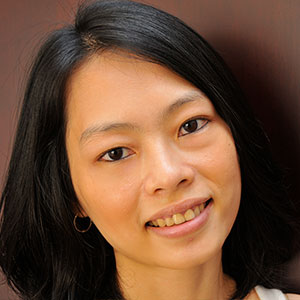The Asean Civil Society Conference/ Asean Peoples’ Forum (ACSC/APF) 2015 was concluded on April 24, 2015, in Kuala Lumpur.
The ACSC/APF is an annual forum of civil society organisations (CSOs) in Asean countries, and is held by the Asean chair country in parallel to the official Asean summit attended by Asean leaders.
The forum is important as it is where the CSOs, non-governmental organisations (NGOs), activists, people’s movements, international agencies and government representatives from across Southeast Asia gather under one roof to voice out their concerns in the region.
This year is particularly significant in view of the fact that it marks the deadline for Asean three pillars – Asean Economic Community (AEC), Asean Socio-Cultural Community (ASCC) and Asean Political-Security Community (APSC).
It is also significant because Malaysia is the Asean chair. Furthermore, it is symbolic for Malaysia as the first ACSC was held in Malaysia 10 years ago, in 2005, at Universiti Teknologi Mara (UiTM) in Shah Alam.
This time around, I am glad to be part of the forum. It has been a fulfilling and enriching week having had the opportunity to listen to the CSOs from across the region.
What I have gathered from the forum could be summarised in one sentence: Asean is far from reality.
After 10 years, Asean leaders remain allergic to civil society. While some government representatives have given their “commitments” to channel the CSOs’ concerns to relevant parties, I remain sceptical of their sincerity.
In his closing remarks, the deputy secretary-general of Asean Community and Corporate Affairs, Dr AKP Mochtan said we should appreciate what Asean has accomplished rather than fussing over what we do not have.
According to him, as of March 31, 2015, around 88% or 127 out of 145 action lines of the APSC Blueprint have been implemented. As for the AEC, the implementation rate reaches 90.5%. At the same time, almost 100% of all action lines in the ASCC Blueprint have been addressed.
But that was not what I heard from the various questions posed by the CSOs, especially those from, for example, Laos, Cambodia and Myanmar.
What is seriously lacking in Asean is not declarations or statements, but fundamental issues such as people’s access to land and resources, minority rights such as for the Rohingyas from Myanmar, as well as the persecution of Laotian and Hmong dissidents, that Asean should deal with.
These CSOs raised real problems in the region, which remain unresolved.
There is wide disparity between Asean elites and the ordinary Asean citizens, because they are not connected to each other. More over, the discrepancy among the Asean countries is apparent in various aspects, even among the CSOs themselves.
Some CSOs are far more “advanced” than the others in term of language, network, exposure and so forth.
Their speeches, statements and declarations show us a far more complex reality of interdependencies.
We have heard too much about how Asean leaders commit themselves to steer Asean closer to the people. What remains problematic is that Asean is a diverse region with distinct political societies and polities. To overcome these challenges, therefore, there is a need to demonstrate transparency in Asean policies.
Asean today remains an elitist organisation that is almost “unapproachable” by its own peoples.
For a regional community to be constructive, there should be a balance between the economy, society and politics. What that essentially means is the need to engage genuinely with the civil society across the region and to be open to their views.
Only if the Asean leaders are willing to listen to the fundamental problems of the Asean people, can the organisation remain relevant for the ordinary Asean citizens.
Will an integrated Southeast Asia with one identity and one vision as its core values become a new reality in the global community of nations?
The question now is, what can Asean do for us? – April 27, 2015.
* This is the personal opinion of the writer or publication and does not necessarily represent the views of The Malaysian Insider.


Comments
Please refrain from nicknames or comments of a racist, sexist, personal, vulgar or derogatory nature, or you may risk being blocked from commenting in our website. We encourage commenters to use their real names as their username. As comments are moderated, they may not appear immediately or even on the same day you posted them. We also reserve the right to delete off-topic comments